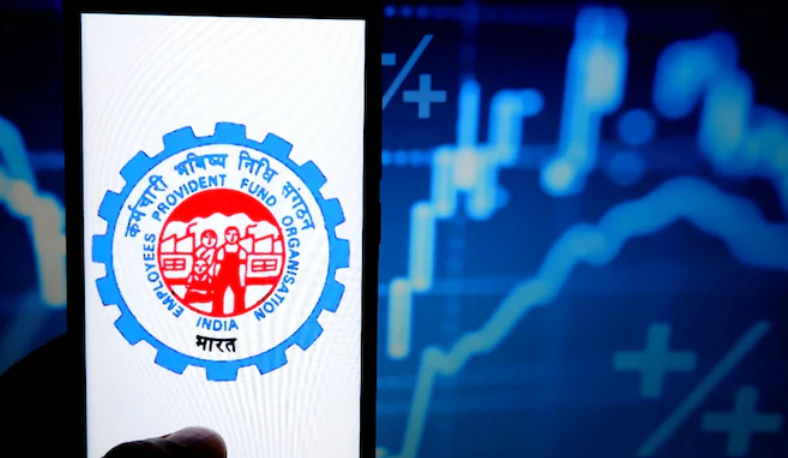EPFO Introduces Self-Correction and Streamlined Transfer Claims Process for Members
EPFO Launches Self-Correction and Faster Transfer Process for Members
The Employees’ Provident Fund Organisation (EPFO) has introduced a new self-correction facility, empowering over 7.4 crore subscribers to update or correct personal details on their EPFO profiles without the need for employer intervention. This move comes as part of a broader initiative to simplify processes and improve service delivery for members of the EPFO. The new facility will allow employees to make corrections in key personal details like name, date of birth, gender, marital status, father/mother’s name, nationality, spouse’s name, and employment dates (joining and leaving), among others.
Union Labour and Employment Minister, Mansukh Mandaviya, announced the launch of this facility on Saturday, emphasizing that the update process would be entirely self-managed, with no employer verification or EPFO approval required for most cases. The facility is available to members whose Universal Account Number (UAN) was generated after October 1, 2017, when linking the UAN to Aadhaar became mandatory. Importantly, no supporting documents will be required for making corrections in these cases, simplifying the overall process.
For members whose UAN was issued before the Aadhaar linkage mandate, employers will still play a role in correcting details, but the process has been streamlined with fewer document requirements. If the UAN is not linked with Aadhaar, members will still need to submit a physical request for correction to their employer, who will verify the details before forwarding it to EPFO for approval.
The introduction of the self-correction feature aims to address common errors made during the registration process by employers, especially in areas such as marital status, nationality, and service details. Previously, if an error occurred, employees had to submit a request for correction, which would require the employer’s verification before being sent to EPFO for approval. The processing time for these requests was often slow, leading to delays in updating crucial personal data. According to data, out of the 8 lakh requests forwarded to EPFO in FY25, only 40% were sent within five days, with the remaining requests taking much longer.
The new system is expected to significantly reduce the time and effort required to correct errors in personal details. With Aadhaar OTP verification, around 45% of cases can be resolved immediately. In the remaining 50% of cases, employers will handle the corrections. Furthermore, any pending requests that a member has already filed can be deleted, and the member can then self-approve the changes using the new system, offering a quicker resolution.
This improvement is particularly beneficial for the 3.9 lakh cases that were still pending with employers as of the latest data. The introduction of self-correction will ease the process for these members, providing quicker access to accurate and up-to-date information.
Another key aspect of the recent update is the facilitation of EPF transfer claims. When an employee switches jobs, the EPF account often needs to be transferred to the new employer. Under the previous system, employees had to rely on their employers to verify and forward transfer requests to EPFO, which could take several days. With the new system, EPFO members who have linked their Aadhaar to their UAN can now file EPF transfer claims directly online using Aadhaar OTP verification, bypassing the need for employer approval altogether. This is expected to significantly speed up the transfer process, allowing claims to be directly forwarded to EPFO for processing.
This change is expected to streamline the EPF account transfer process for the millions of workers who change jobs annually. In FY25 alone, approximately 1.3 crore transfer claims were filed, and more than 94% of them can now be immediately processed without employer intervention. The new system also reduces the risk of errors and delays, which have been a major concern for employees. Currently, approximately 17% of grievances filed by members are related to transfer issues, and the simplification of the transfer claim process is expected to reduce these issues considerably.
For large employers who handle a significant volume of such requests, the elimination of employer verification will reduce their administrative burden, allowing for more efficient processing of transfer claims. Furthermore, EPFO is working to streamline its internal processes to ensure that transfer claims are processed more swiftly. The goal is to ensure that the turnaround time for such claims matches the efficiency of the banking system.
EPFO
The simplification of these processes represents a major step forward in improving the overall service delivery of EPFO. It aligns with the government’s ongoing efforts to modernize and digitize public sector services and enhance ease of living for the Indian workforce. With more direct control over personal data updates and transfer claims, EPFO members can now expect a more responsive and efficient system that will reduce delays and increase transparency.
These updates mark a significant improvement in the way EPFO handles member requests and transfers. With the ability to self-correct details and transfer accounts without employer intervention, subscribers can look forward to a more seamless experience, saving time and reducing the risk of errors. The changes also reflect the EPFO’s broader commitment to modernizing its systems and making its services more accessible and user-friendly for millions of workers across the country.
Also Read:-
Mahashivratri Shiv Utsav 2025- Mumbai Prepares for a Grand Celebration
